Thanksgiving conjures up visions of fallen leaves, traditional foods, family gatherings and possibly a football game and shopping too. But, does it connect you to your Jewish values and traditions?
After searching my own memories and talking with other young (and not so young) Jewish adults, connections between Thanksgiving and Jewish traditions began to emerge – in a factual, historical and even spiritual light. Here are five intriguing connections that might even spark a conversation around your Thanksgiving or Friendsgiving table.
1. Celebrating the Harvest Season, Did Sukkot Inspire Thanksgiving?
One of the most obvious and yet intriguing connections is between Sukkot and Thanksgiving. In fact, Sukkot - a celebration of the fall harvest – may very well have been the influence for the American Thanksgiving. The Pilgrims spent time in Holland with Jews before sailing on the Mayflower to the United States and were also very familiar with the Hebrew Bible and therefore the festival of booths or Sukkot.
As Rabbi Elias Lieberman, leader of the Falmouth Jewish Congregation in Massachusetts said: “Both of these splendid holidays encourage us to stop and acknowledge the manifold blessings God bestows upon us each and every day. Whether we accomplish that … over a slice of Thanksgiving pumpkin pie or beneath the leafy branches of a sukkah roof—or both—we understand and embrace the impulse which inspired our Pilgrim and our Israelite ancestors.” (https://www.jns.org/did-sukkot-help-shape-thanksgiving/)
2. Giving Thanks
In Jewish liturgy, we recite the” Shehecheyanu” to acknowledge our gratitude that we’ve made it to a holiday or any important milestone or gathering.
As its moniker suggests, gratitude is also at the root of the Thanksgiving celebration. This year, when many of us will gather with a larger group than we have been able to since the pandemic started, it may feel especially poignant to say the Shehecheyanu to acknowledge our gratitude to be together.
Reyna McKinnon, age 28, highlighted another interesting perspective: the idea of giving thanks for religious and personal freedom. The Pilgrims came to America in search of religious freedom, which many see as a parallel to Passover’s celebration of freedom. As McKinnon said: “Passover is when we, as Jews, give thanks for our liberation from bondage in ancient Egypt. Thanksgiving is meant to be the holiday where we give thanks as Americans.” Reyna extended that idea to an even more personal level: “For my European Jewish ancestors, migration to the U.S. led them to safety. Because of that choice I am able to gather with my family each year for Passover and Thanksgiving. For that, I am thankful.”
Whether your gratitude is rooted in history or the current moment, taking the time to stop and be grateful is indeed a common link between Jewish values and Thanksgiving.
3. Kehillah
Gathering as a community, a kehillah, is a pillar of Judaism. In fact, the concept of kehillah is so central to the tenants of Judaism that many scholars believe that if you are performing the mitzvah of caring for the needs of the community, you are exempt from the mitzvah of prayer.
Rabbi Steven Carr Reuben explains in a Divrei Torah that “what gives Jews their sense of identity is not primarily belief, but rather, belonging. It is the idea of “peoplehood,” the sense of belonging to the Jewish people, the Jewish community …”
In fact, in the torah portion Rabbi Reuben was referring to they use the term vayakhel which means “and Moses assembled” or “And Moses created a kehillah, a community.”
Thanksgiving is also about gathering with family and friends, even taking in those who cannot make it home for the holidays and need a temporary community to join. After the jolting isolation of the pandemic, gathering as a community might be for many, the most important part of celebrating Thanksgiving this year and a clear connection to the Jewish mitzvah of kehillah.
4. L’dor V’dor
Creating and sharing traditions is central to a Thanksgiving celebration. This passing down of traditions is known as l’dor v’dor - from generation to generation. Traditions provide a strong base to grasp when our routine is disrupted like it was during the height of the pandemic as well as a springboard for meaningful change as new generations become the leaders of our community.
When we celebrate any holiday, be it religious or secular, where we gather, what we eat, what activities we engage in are all part of the memories we build and become the traditions we look forward to each year. Making connections among generations is a strong Jewish value and is also one of many happy outcomes from gathering as a community at a Thanksgiving feast each year.
5. Food Traditions
Creating food and flavor memories is another strong connection between Thanksgiving and Judaism. While Jews certainly can’t claim that we own the concept of marking holidays with food, it frequently plays a key role in both the story behind a holiday and the gathering to mark the occasion. The Passover seder is full of symbolic foods to help us tell the story of the exodus, Rosh Hashanah’s round challah is arguably downright iconic. Even a holiday marked by the absence of food – Yom Kippur – ends with the all-important breaking of the fast.
No matter what your traditional Thanksgiving meal includes, there is no question that Thanksgiving is squarely rooted in food traditions, just like so many Jewish gatherings.
Even if you continue to think of Thanksgiving as a secular holiday unencumbered with religion, I invite you to think about gathering and serving your kehillah, practicing l’dor v’dor by sharing traditions or learning from an elder, and taking a moment to give thanks for the bounties of the season and the freedom to be wherever you are to enjoy your special meal.
For a concrete way to connect Judaism with Thanksgiving, try this challah stuffing recipe.
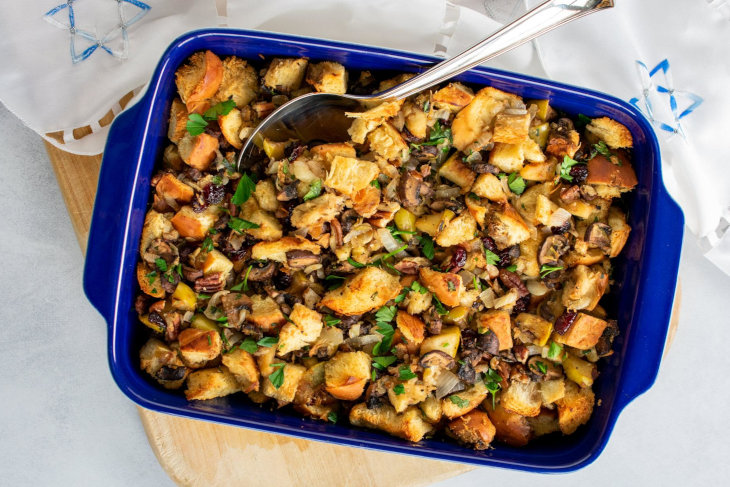
For more historical perspective of Jews and the Thanksgiving celebration, be sure to check out this article: 6 Ways that Jews Shaped Thanksgiving.





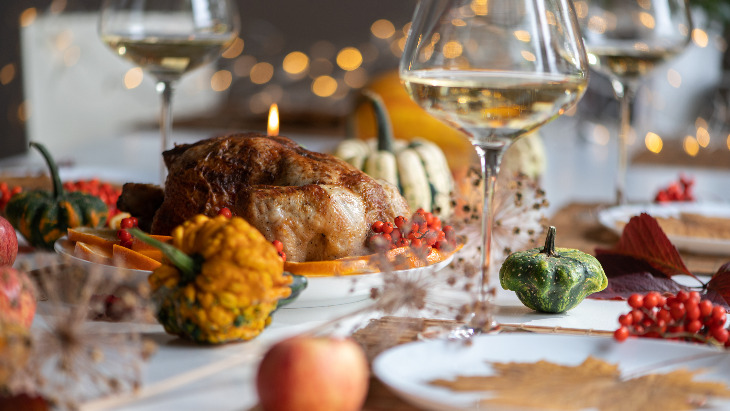


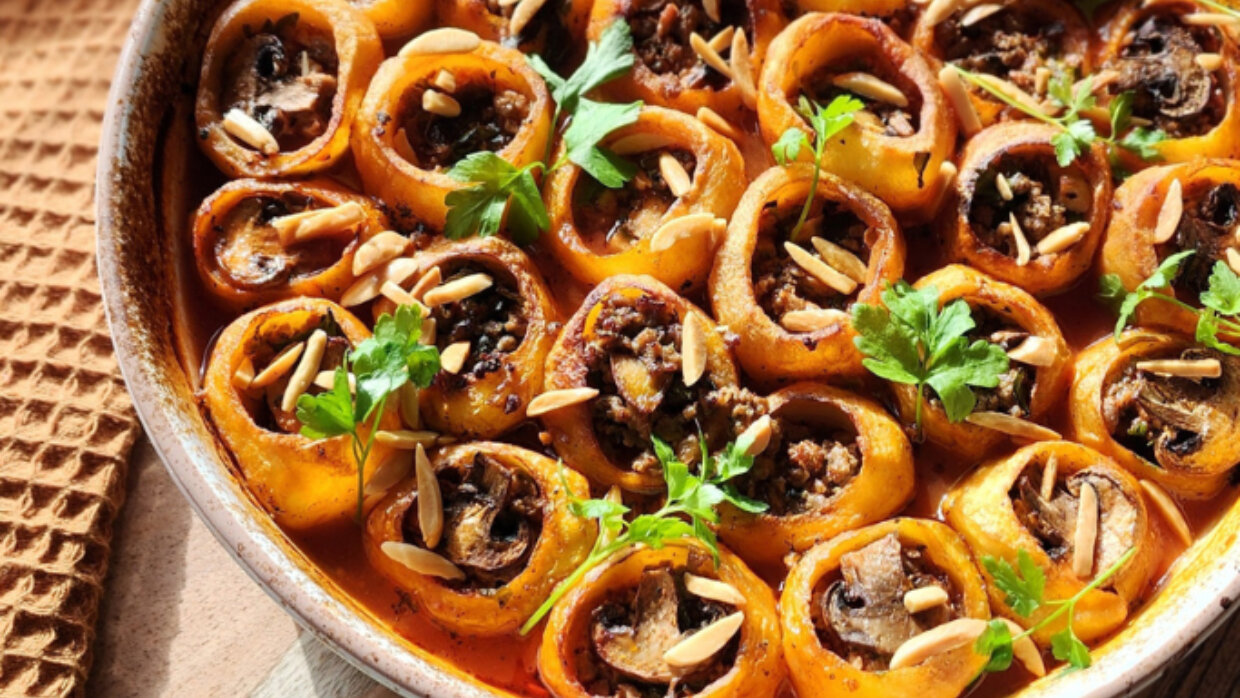
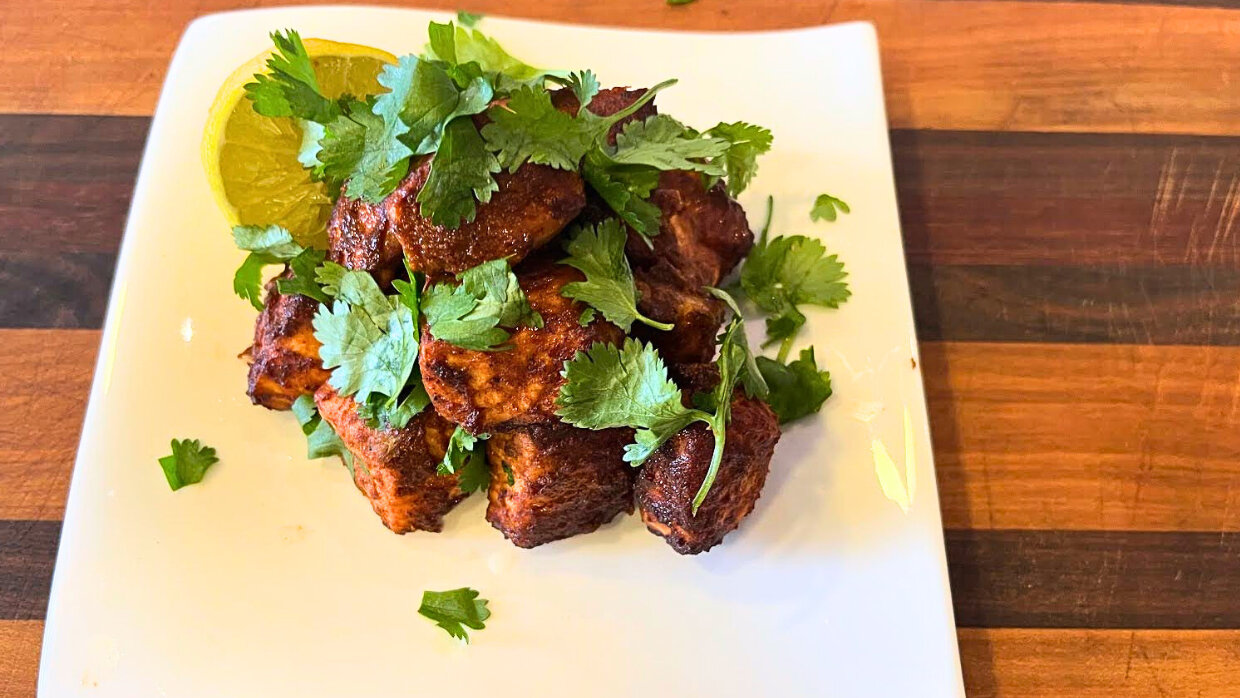
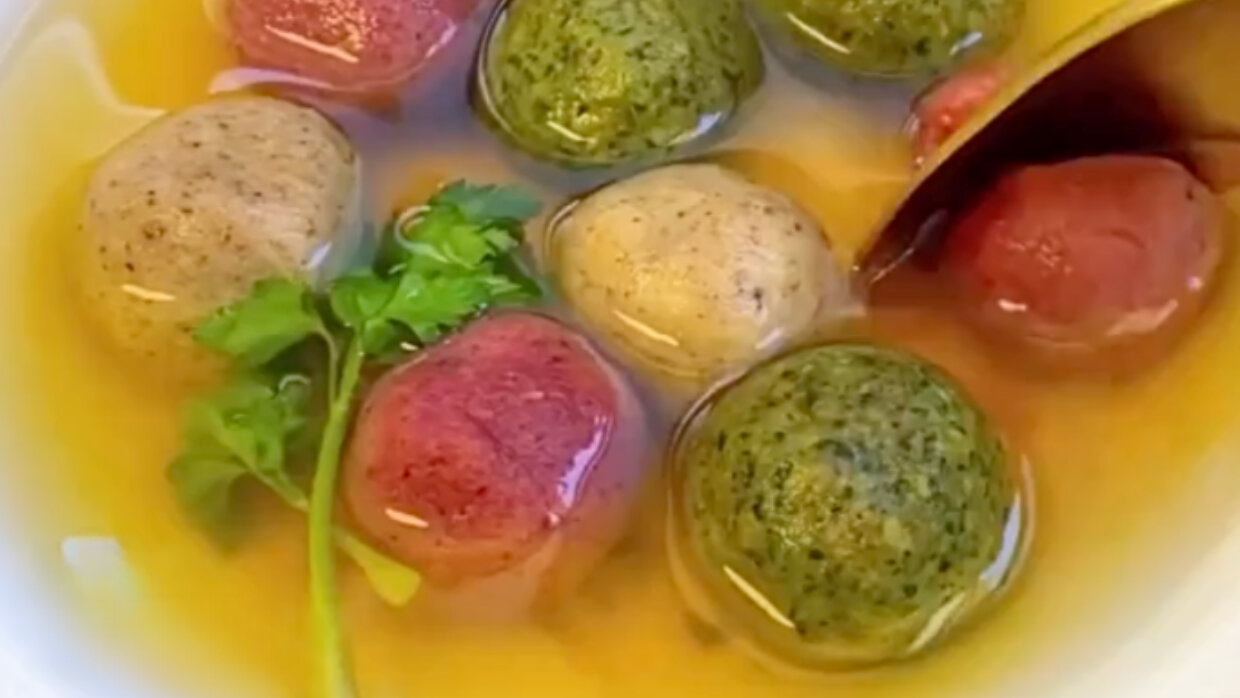


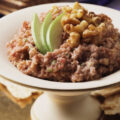




Interesting that the most obvious connection between the Jewish people and Thanksgiving was missed. Judah was, according to the Book of Genesis, the fourth of the six sons of Jacob and Leah and the founder of the Tribe of Judah of the Israelites. By extension, he is indirectly the eponym of the Kingdom of Judah, the land of Judea, and the word Jew.
The Hebrew name for Judah, Yehuda, literally "thanksgiving" or "praise," is the noun form of the root Y-D-H, "to thank" or "to praise."